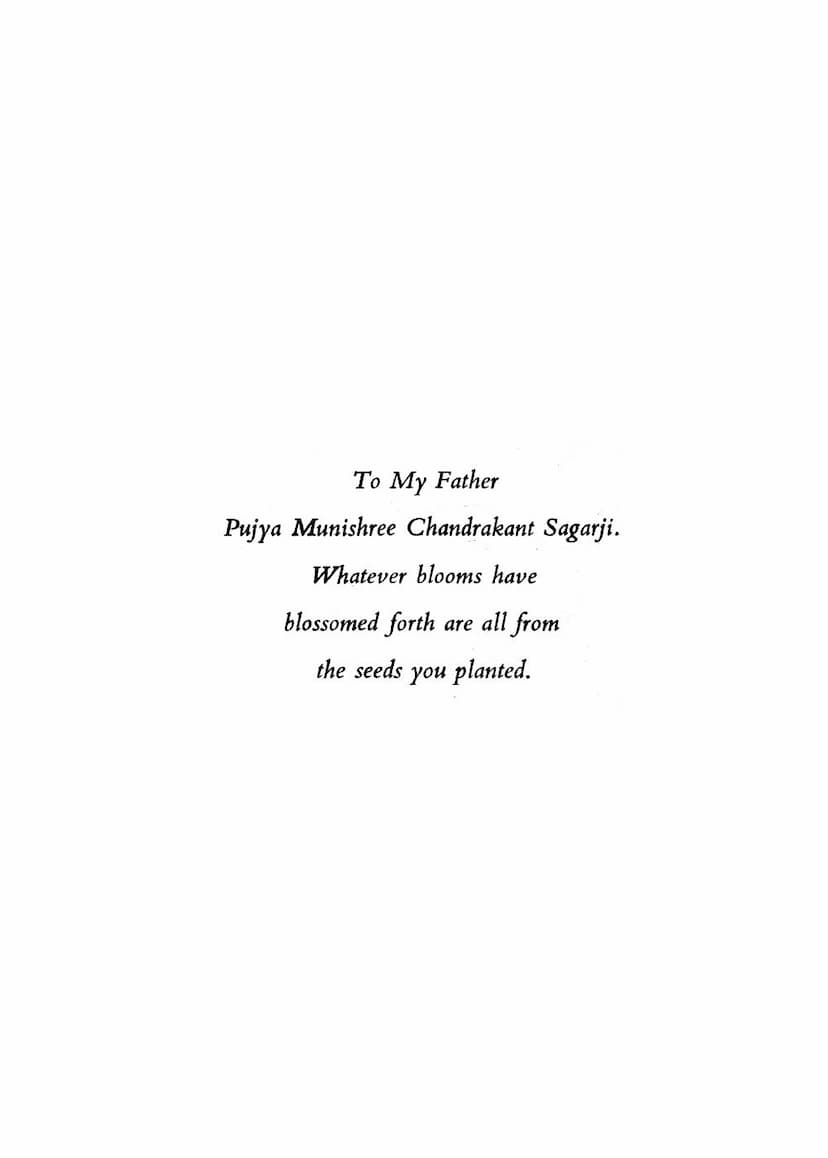Lotus Bloom
Added to library: September 2, 2025

Summary
Here's a comprehensive summary of "Lotus Bloom" by Chitrabhanu, based on the provided text:
"Lotus Bloom" by Chitrabhanu (Munishree Chandraprabhsagarji) is a collection of profound spiritual and philosophical insights, presented in a poetic and aphoristic style. The book, translated from Gujarati by Balchandra Parikh and published by the Divine Knowledge Society, aims to offer "wisdom-pearls" to the reader, guiding them towards self-improvement and inner peace.
Core Themes and Messages:
- Self-Improvement over Worldly Improvement: A central tenet is that true progress lies in improving oneself rather than solely focusing on external changes to the world. The author emphasizes that inner transformation is the key to finding happiness and peace.
- The Power of Inner Consciousness: The book stresses the importance of self-knowledge and the cultivation of the inner spirit. The soul is presented as the ultimate friend and foe, and true fulfillment comes from within.
- Compassion and Amity: The opening poem, "The Immortal Song," sets a tone of universal goodwill, advocating for amity, compassion, and the prosperity of the universe. The author's compassion extends even to the "wretched, the cruel, the irreligious."
- The Nature of True Beauty and Happiness: True beauty is located not in external appearances but in the "tranquil ecstasy of man's perfected consciousness." Similarly, happiness stems from contentment of the mind, not from material possessions or luxury.
- The Importance of Actions and Intentions: Actions are dual-natured; those performed with craving for fruitage are "mean," while those inspired by an urge for fulfillment, free from desire for reward, are "ennobling."
- Faith and Perseverance: Faith is considered the greatest force in life, essential for endeavors to bear fruit. The author encourages moving forward with unwavering resolve, even when facing challenges.
- The Duality of Life and Human Nature: The book explores various dualities: knowledge vs. passion, man vs. brute, wealth vs. contentment, love vs. attachment, and light vs. darkness. It highlights the complexities of human nature and the choices one makes.
- The Value of Time and Moments: Each moment is precious and should be utilized wisely. The idler is contrasted with the sensible person who values every moment.
- The Role of Virtue: Virtues like modesty, humility, equanimity, candor, and contentment are presented as essential for a meaningful life. The book critiques superficiality and encourages genuine inner development.
- The Cycle of Life and Karma: The text hints at the idea of karma and the consequences of one's actions, suggesting that the present endeavor shapes future destiny.
- The Nature of Love and Attachment: Love is depicted as a bond of disinterested relationship for collective happiness, while attachment is selfish and self-centered.
- The Importance of Silence: Silence is presented as a source of vitality and a tool to enhance the power of speech.
- The Contrast Between Materialism and Spirituality: The book often contrasts the pursuit of worldly gains with spiritual growth, emphasizing that true wealth lies in the inner being.
- The Transformative Power of Distress: While many see distress as purely negative, the author suggests that it can be a catalyst for growth, purification, and a clearer understanding of reality.
- The Illusion of Attachment: Attachment is likened to a self-woven web that becomes difficult to escape, leading to entanglement.
- The Nature of True Leadership and Discipleship: A true votary speaks less and works more, while a leader speaks more and works less. True discipleship involves faith and adherence to guidance.
Literary Style:
Chitrabhanu's writing is characterized by its concise and impactful aphorisms, often using metaphors and allegories drawn from nature (lotus, rose, sea, fire, banyan tree) and everyday life. The language is evocative and encourages introspection. The author's personal journey, as hinted in the "Guiding-Star" preface, seems to have been one of overcoming darkness and finding inner strength through spiritual realization.
Overall Message:
"Lotus Bloom" offers a timeless wisdom that encourages readers to cultivate inner peace, compassion, and self-awareness. It serves as a spiritual guide, urging individuals to look beyond external circumstances and to discover the profound strength and beauty that resides within their own being. The book is an invitation to blossom into one's fullest potential through consistent self-reflection and ethical living.